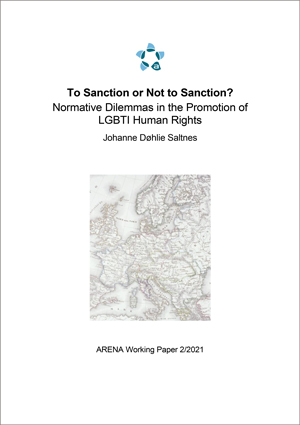 A rights-based approach to development, a cornerstone of the European Union’s (EU) development policy, can be interpreted as an attempt to govern development assistance through impartial rules and standards. Yet, such an approach might also run into a number of difficulties when introduced to a complex, real-world context. In this working paper, I emphasise that the practice of rights-based development policies is closely bound to the process of context-specific application. Through an examination of the path through which the EU and the United States decided on their approach to an anti-gay bill introduced in Uganda in 2014, I show that human rights conditionality is not applied in an automated fashion in accordance with impartial rules and standards. Rather, the path through which US and EU executives operate is weighing normative dilemmas connected to the unwanted consequences of human rights sanctions and public shaming. While these executives ultimately chose different responses, they arrive at their decision through weighing similar dilemmas. Accordingly, the paper highlights the importance of normative dilemmas for shaping and determining foreign policy decisions and calls for more research into this under-studied phenomenon.
A rights-based approach to development, a cornerstone of the European Union’s (EU) development policy, can be interpreted as an attempt to govern development assistance through impartial rules and standards. Yet, such an approach might also run into a number of difficulties when introduced to a complex, real-world context. In this working paper, I emphasise that the practice of rights-based development policies is closely bound to the process of context-specific application. Through an examination of the path through which the EU and the United States decided on their approach to an anti-gay bill introduced in Uganda in 2014, I show that human rights conditionality is not applied in an automated fashion in accordance with impartial rules and standards. Rather, the path through which US and EU executives operate is weighing normative dilemmas connected to the unwanted consequences of human rights sanctions and public shaming. While these executives ultimately chose different responses, they arrive at their decision through weighing similar dilemmas. Accordingly, the paper highlights the importance of normative dilemmas for shaping and determining foreign policy decisions and calls for more research into this under-studied phenomenon.
This paper was first published as Globus Research Paper 3/2030. It is part of the project ‘GLOBUS – Reconsidering European Contributions to Global Justice’ which has received funding from the European Union’s Horizon 2020 research and innovation programme under grant agreement no. 693609. Available at: https://papers.ssrn.com/sol3/papers.cfm?abstract_id=3536908